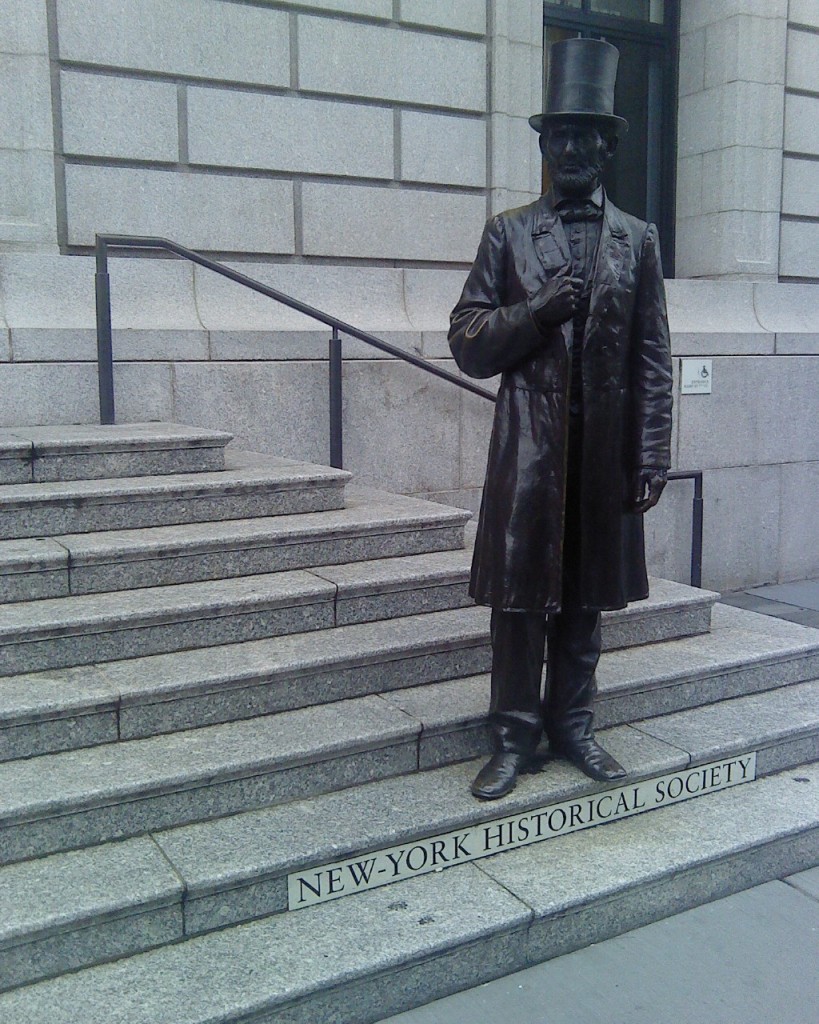By Dan Jaster
Bureaucracies surround us every day. They help make things smoother, or irritate us to no end with their meticulous demand for control over even the finest details. As Max Weber noted in his famous essay “Bureaucracy,” it is this duality that makes bureaucratic systems so interesting: in their quest for control they help put social processes on autopilot, but this is not without consequence. Often we become dependent on them, and disrupting their rationalistic logics makes life more difficult. We reify bureaucracies (and they reify themselves) through our very dependence on the system once it is in place.
While this view may be frightening, we should also take solace in the very irrationalities that these hyper-rational systems produce, particularly when faced with real-world complexities outside of their influence. I was recently in New York for a Rural Sociology conference. I don’t want the multi-faceted irony of this conference to slip by the reader: we met to discuss rural people in one of the most urban areas of the country; the theme was also focused on “land-grabs” by corporations against small-scale farmers, and these outraged sociologists discussed how to help farmers resist such actions mere blocks away from the heart of the financial sector that was fueling these land-grabs. Of course, that assumes that large-scale financing even has a heart; I like to imagine big-bankers’ lives resembling Edward Hopper’s depictions. During my off-hours, I played the tourist; it was during one of these trips that I experienced the difference between an institutional rationality and an everyday rationality.

One must-see during my stay in New York was the Metropolitan Museum of Art (i.e., the Met). As I presented that morning, I had my backpack and laptop with me. While in line, I ran into my first bureaucratic jeu. The Met has a $25 suggested admission price, but you can go lower if you like; it also has a $12 student price. Being a grad student, I asked for a student ticket. Bureaucracies like to track and record as many things as possible, so I figured I should help them accurately understand who was visiting the museum. The teller dolefully told me that the price was $12, but I could pay less if I liked. He probably thought I was being cheap: I looked sharp for my presentation, and I was staying in Queens, meaning I didn’t have time to change before arriving at the Met. Knowing that the admission price is suggested, I suggested $0; New York is expensive, and grad students don’t make a lot of money. The teller then informed me that $0 was not an option. I ran into the first built-in contradiction in the system: the price of admission was suggested, but suggestible doesn’t mean you can suggest anything.

With my ticket in hand (I opted for $10), I started towards the galleries. As I entered, I was informed that my backpack was too large. I had to check it in at the coat-check. Once I got to the coat check, I was informed that they would not check in my bag if it had my laptop in it. I was struck by the irony. The only reason I had my backpack was to carry my laptop (which I needed for my presentation). However, they wouldn’t let me enter the gallery with my backpack, and they wouldn’t check in my bag with my laptop inside it; I thus had to carry the laptop in my hands, which was the circumstance I had hoped to avoid by bringing my backpack in the first place.
By themselves, these rules make sense: big backpacks take up space and are a source of potential thievery within the museum, and keeping electronics out of the coat-check area not only keeps the museum from dealing with possible theft but also helps them avoid the potential for damaged personal property complaints. However, the beauty and bane of bureaucracies is that each rational rule does not exist independent of the others in the system: sometimes they interact and contradict or problematize each other, particularly when confronted with the complexities of the world outside the system. These interactions are the sources of our hassles (or amusing anecdotes) with bureaucracies. I laughed, and told the coat-check clerk about the irony. He didn’t laugh. Those on the lower levels of the hierarchy have less power and agency, so they can only follow the rules; he likely has heard that complaint before from people who failed to see the humor. With my laptop in my hands, and backpack in the coat-check, I toured the Met. But, hey, at least the bureaucracy was able to maintain its rationality at the expense of my own.
Sources Cited:
Weber, Max. 1946. “Bureaucracy.” In From Max Weber: Essays in Sociology, edited by H. H. Gerth and C. Wright Mills. New York: Oxford University Press.
For the moral implications of bureaucracies, see:
Sjoberg, Gideon, Ted R. Vaughan, and Norma Williams. 1984. “Bureaucracy as a Moral Issue.” Journal of Applied Behavioral Science, 20:441-453.
